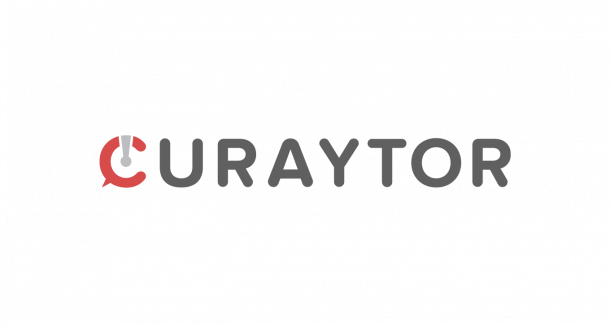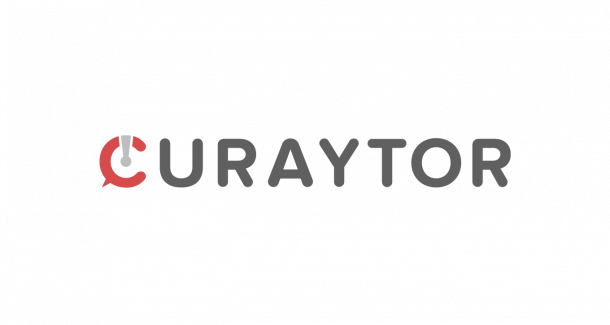12 Amazing Sales Tools Real Estate Agents Aren't Using Yet
Five minutes after my first sales coach fired half of the reps and made them leave the building, he came back in and drew a square on the chalkboard. He said, “When we look at your numbers to see how you're doing, we look at them on a spreadsheet. There's only enough room in the box on our spreadsheet for your numbers. Excuses don't fit.”
Like it or not, a lot of sales happen in boiler rooms. Sales can be sleazy. The profession is viewed as such. In the minds of many, salespeople are nothing more than greedy, egotistical schmoozers.

People think of sales very differently than they think of marketing. People think marketing is sexy. People get awards and make lists for their marketing skills. The best brands are constantly innovating in their commercials and on social media.
Due to this sleazy versus sexy scenario, what's happened in the real estate industry is that there are infinitely more marketing tools that agents are drooling over and using than there are sales tools. As a result, the real estate industry is over-indexed on marketing tech and under-indexed on sales tech.
The agent obsession with marketing is real. At this point, they all use Facebook and social media. A lot of them make videos of their listings. They all pay for professional photos. They all have an email newsletter. They all offer a digital CMA. They all have home search on their website with automated listing alerts.
But the truth is, sales software has come a long way too. You can do a lot more for your reps than giving them a CRM with a dialer and a headset.
There are some handy new sales tools every agent should try. They increase efficiency and output. They make it easier to have the right number in the box on your spreadsheet. They make it a little sexier to be in sales. They make it a little less sleazy.
Increase your lead conversion rate by improving your conversations
When you're selling, you’re speaking. In my bestselling book, The Conversion Code, I said, “Conversations create customers.” With the help of companies like Chorus and Gong, you can quickly analyze and improve yours.
These tools can pick up on and measure sentiment. They can identify when questions are asked. They can isolate keywords words that commonly come up. They provide stats like what percentage of a call the rep is talking compared to the prospect.
You can also learn what top and bottom performers are saying when somebody brings up your competitors. Or when somebody brings up commission. Or when someone says they are going to list with a friend.
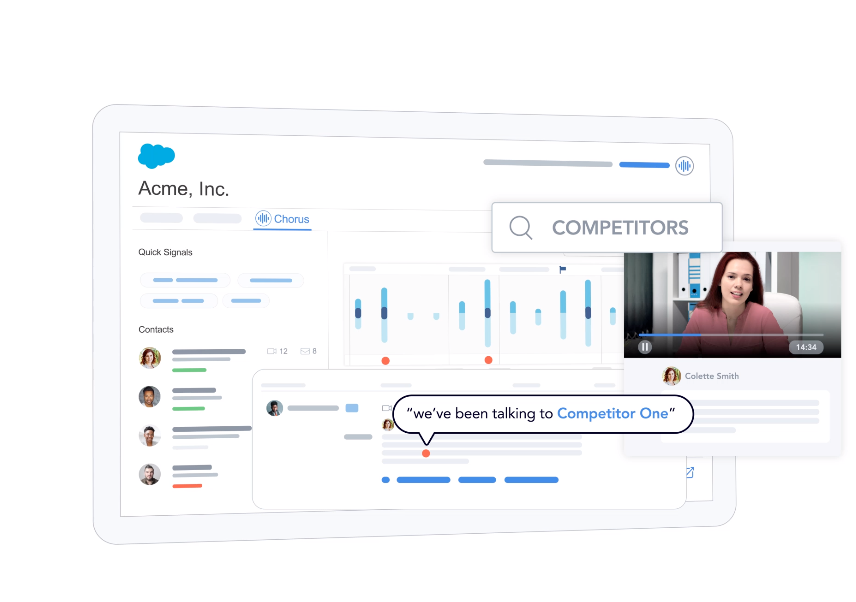
As an example, at Curaytor, we tried Chorus. We saw that the top salespeople had about a 60% talk time for themselves, and about 40% of the call was the other person speaking. We compared that to reps at the bottom, and we learned that it was 90% the sales rep talking and the prospect was only talking 10% of the time. That created crystal clear and actionable advice for us to take to the bottom performers and show them the ratio of conversation to listening of the people who are making the kind of money that they want to make. Then we said, “Here's yours.” It was so obvious that it allowed the reps to make significant changes quickly. Immediately, their close rates went up.
Have better sales meetings and 1-on-1’s
Any great sales organization and any great sales coach will have meetings with their teams regularly. They typically have group meetings for coaching and one-on-one sessions for accountability. Getting this right can create a dramatic increase in production.
But there is an art and a science to having sales meetings that don’t suck. Using Hyper Context and Fellow, your group coaching and one-on-one sessions will be more efficient, effective and enjoyable.

Best of all, what you teach will be implemented. We often leave a meeting, and nothing changes. By using software, the action items and accountability for completing them are built-in.
Take better notes during sales coachings
As a salesperson, you are constantly attending coaching and taking notes. I’m old school when it comes to note-taking and prefer a pen and paper. Apparently, there are some scientific reasons you should encourage your salespeople to write out their notes too.
Per the Univerity of Calgary, “taking notes by hand involves cognitive engagement in summarizing, paraphrasing and organizing — in short, manipulating and transforming information that leads to deeper understanding. Note-taking associated with keyboarding involves taking notes verbatim in a way that does not involve processing information.”
Even though I am old school when I take notes, I’m also aware some incredible things have happened in the note-taking space. Otter and Fireflies are technologies that use AI to attend your sales meetings and take notes for you. They organize the notes and make them searchable. They pull out the most common words used throughout the meeting and even create action items that automatically add to your calendar.
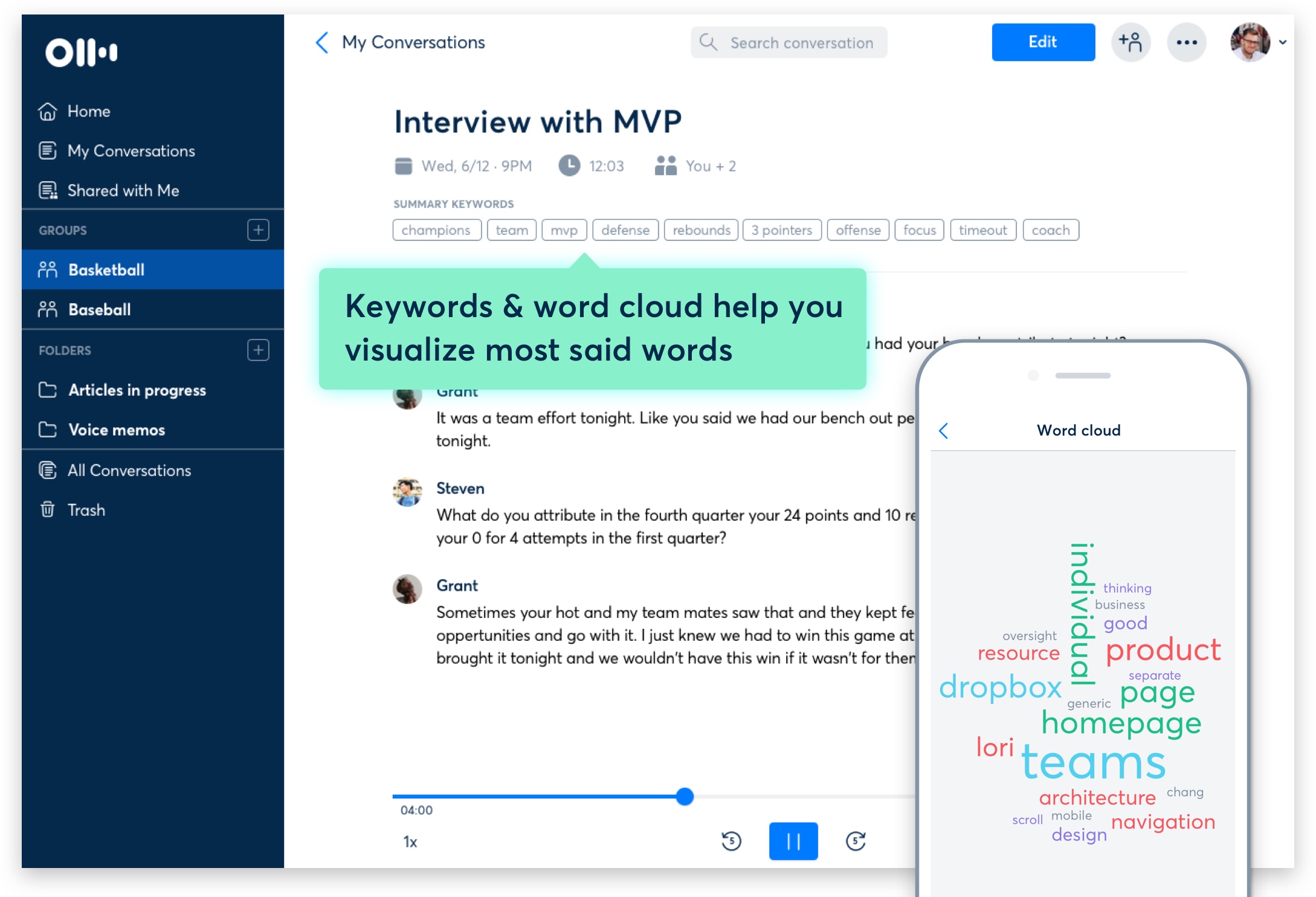
I still like to see my team take notes with pen and paper, but why not use Otter or Fireflies to supplement their efforts. The notes even break down by who was talking and when. So, if I want to go back and look at notes from a meeting I missed, I can see who said what.
Run sales contests that increase effort and results
Salespeople are competitive. They thrive on public praise but also fear public shaming. You can lean into that by making everyone's progress toward quota something visible to the entire company. Then add a layer of gamification or a competition to dramatically increases their output.
There's excellent sales software specifically for leaderboards and contests like SalesScreen, Spinify or Sisu. One of SalesScreen’s best features is their Bracket Competitions. It's like bracketology for NCAA March Madness, but it's your sales reps competing for the crown.

It is incredible how impactful contests can be. The companies that have implemented them see a 53% increase in activity during a one-day contest and a 44% increase in activity when they run a longer competition. In the real estate industry specifically, a 25% increase in sales activities (making dials, sending emails, leaving voicemails) leads to a 45% increase in sales.
Learn what matters the most to someone who is considering hiring you
One of the ways real estate agents can make their sales pitch and listing presentation better is by simply understanding which parts truly matters the most to the prospect. For example, if I use something like Attach, I can send over my listing presentation or my pre-listing presentation and then look at data showing me the total time they spent looking at it and the pages they spent the most time on.
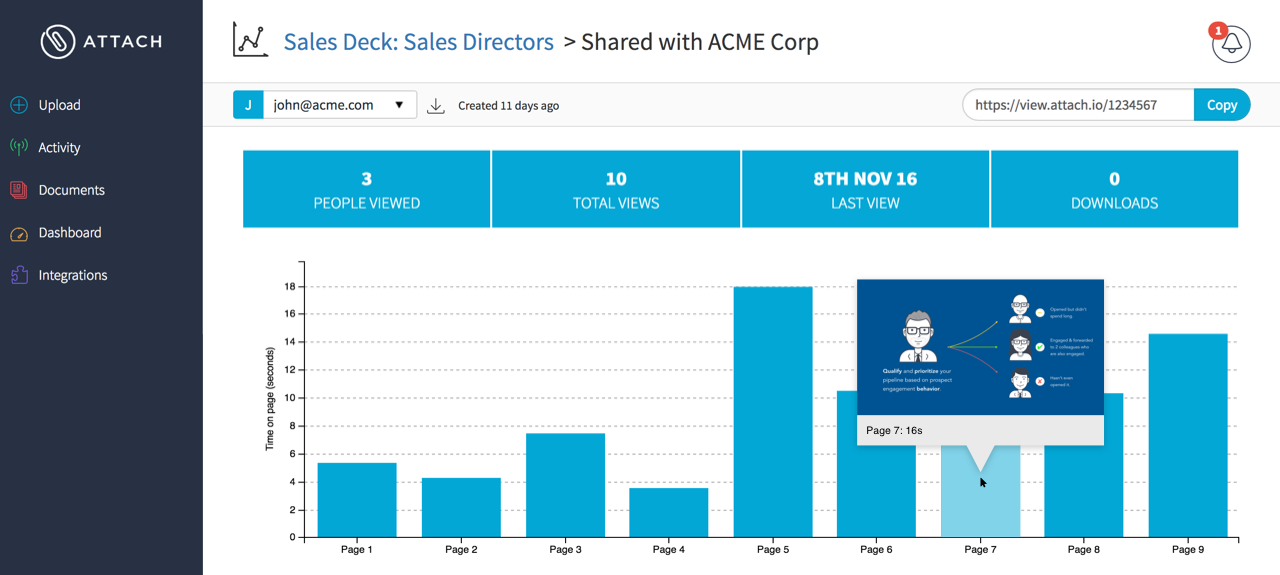
You have things in your listing presentation about your experience, reviews, marketing, and service. Knowing what matters the most to someone who is selling their home must be what matters the most to you too. You need to laser focus on what they are laser-focused on. Attach makes that easy to do.
Give credit where credit is due
Salespeople often have massive egos. So software like Kudos or Bonusly that props them out to the whole company and gives them points they can use on real-world rewards is a smart idea.
You hit your quota for the number of calls made three days in a row; here are a thousand points. You can also prop them out privately, and sales reps can even give props to each other. For example, after a sales rep helps another craft their pitch they can prop them out with points as a thank you.
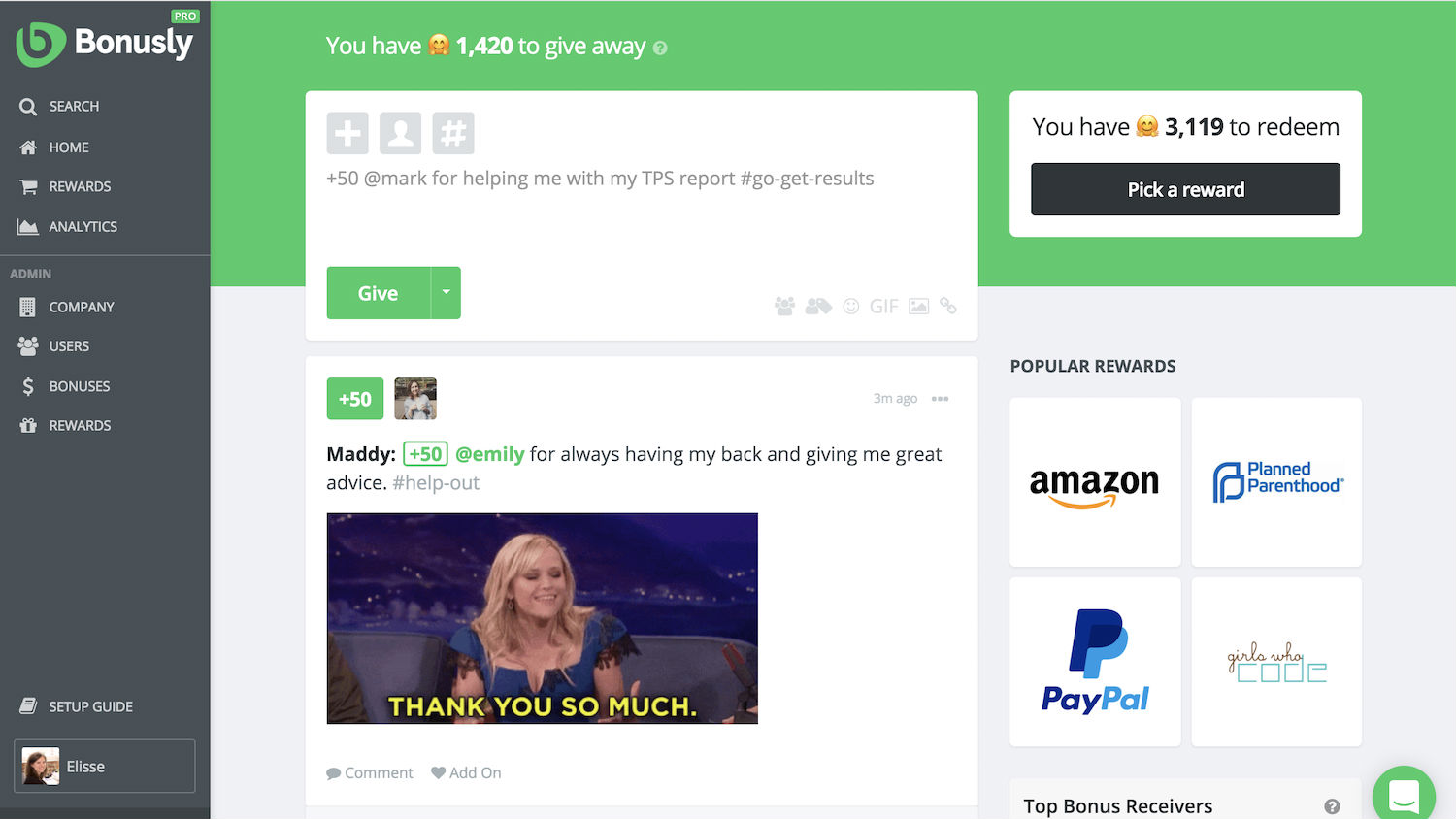
You can even redeem points for a donation going to a charity on your behalf. Money isn’t everything to everyone. Sometimes gratitude and giving back matters more.
Maybe the leads aren't weak maybe you're weak
My guess is if you are weak, it's probably on the sales tech side. If you want to improve your lead conversion rate, cost-per-lead, cost to acquire a new customer and the overall ROI of the money you spend on marketing, start obsessing about sales.
It's time for sales tools to get as much love in the real estate industry as marketing tools.
I bet you just learned about a lot of stuff that you had no idea existed. So now, as my first sales coach would say, “Excuses don’t fit.” Time for you to execute.
